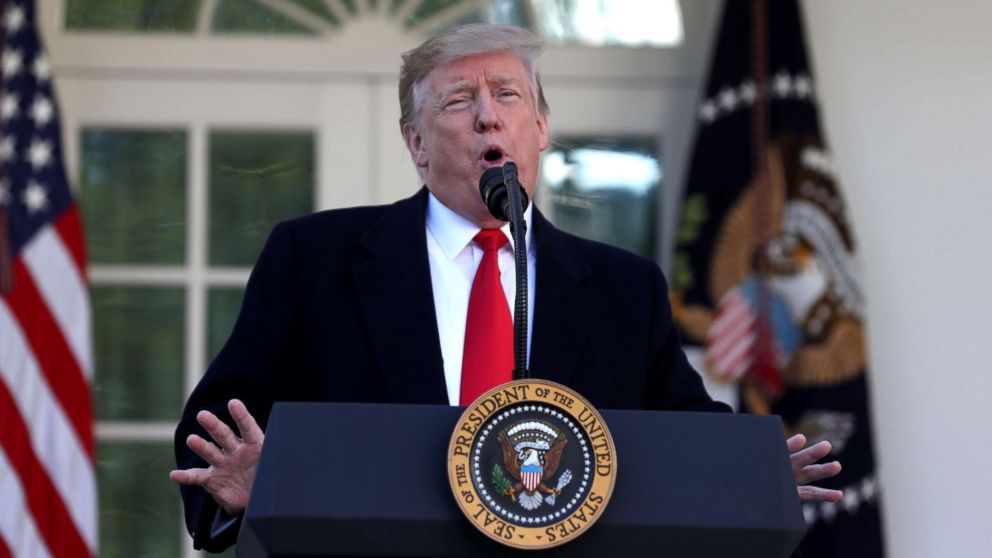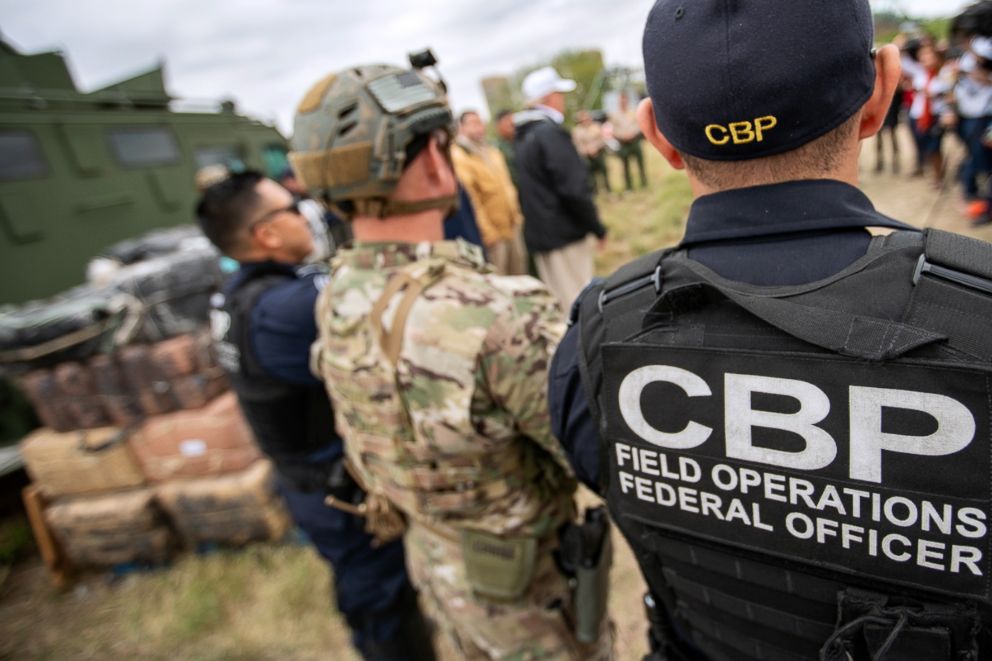Fact Check: No evidence for Trump's tales of duct-taped women, prayer rugs at border

In his battle for a border wall, President Donald Trump has repeatedly told colorful, and at times disturbing, stories to make his case. Two in particular, involving duct tape and prayer rugs, have attracted so much attention administration officials reportedly launched an urgent effort to find evidence to support the president's claims.
But no evidence has been found -- of either migrants using prayer rugs at the border or smugglers using duct tape on women to traffic them -- according to an administration official who spoke to ABC News on the condition of anonymity because the person was not authorized to speak publicly.
It appears Trump's Hollywood movie-style descriptions of human trafficking at the border, at this point, are closer to fiction than fact.
'Duct tape all over the place'
Trump's most recent retelling of the duct-tape story came Friday in the Rose Garden as he announced a temporary end to the government shutdown. He argued Democrats needed to wake up to the horrors at the border, and again launched into an ad-libbed, graphic account he's told with relish more than a dozen times this month.
"Women are tied up, they're bound, duct tape put around their faces, around their mouths," he told reporters. "In many cases, they can't even breathe. They're put in the backs of cars or vans or trucks."
One time, he said the tape was blue. Another time, he called it electrical tape.
Last Thursday, he told a similar, but more elaborate, version.
"I mean, you have hundreds of miles of open space, and they go out there, and they're loaded up with drugs or they have women in the backseat of the cars with duct tape all over the place," he said at a meeting on trade policy.
That isn't all, according to Trump. The week before, the president tweeted about an article in the conservative Washington Examiner quoting an anonymous rancher claiming multiple prayer rugs, commonly used during worship by Muslims, had been found by local farmers and ranchers. He appeared to be trying to falsely tie the rugs to his frequent claims that terrorists could cross the border unless his wall is built.

Border rancher: “We’ve found prayer rugs out here. It’s unreal.” Washington Examiner People coming across the Southern Border from many countries, some of which would be a big surprise.
— Donald J. Trump (@realDonaldTrump) January 18, 2019
Human trafficking experts and immigration advocates for women told the Washington Post earlier this month they had no idea where Trump was getting his information. Women being duct-taped, they said, wasn't something they'd ever heard of.
Shortly after the Post article was published, the media outlet Vox said it had obtained a memo written by a top official at U.S. Border Patrol asking agents to quickly supply "any information" they had on claims that traffickers "tie up and silence women with tape" before illegally driving them into the U.S -- claims like Trump's.
The Department of Homeland Security, which oversees the Border Patrol, referred questions to the White House, which had no comment.
To be clear, traveling to the border is dangerous. One internal document obtained by ABC News last month found that the U.S. officials were aware of some 260 deaths of migrants trying to reach the U.S.-Mexico border.
According to the Human Trafficking Legal Center, most foreign-born human trafficking victims enter the United States with legal visas believing they will be given a chance to work legitimate jobs. Others may cross illegally with the hopes of finding work in the U.S., only to be trafficked into forced labor once they've crossed the border.
But according to the administration official who spoke with ABC News, no evidence has been found yet of women being duct-taped by smugglers. And no evidence has turned up either, the official said, of prayer rugs discovered along the border.
No administration official has yet offered any information to back up the president -- or suggested there is classified information that would.
Several news outlets have noted there is one place where both prayer rugs at a border and duct-taped women can be found: the 2015 fictional crime film "Sicario," in which FBI agents fight Mexican drug cartels.



